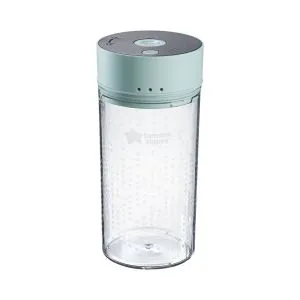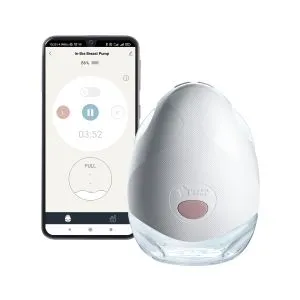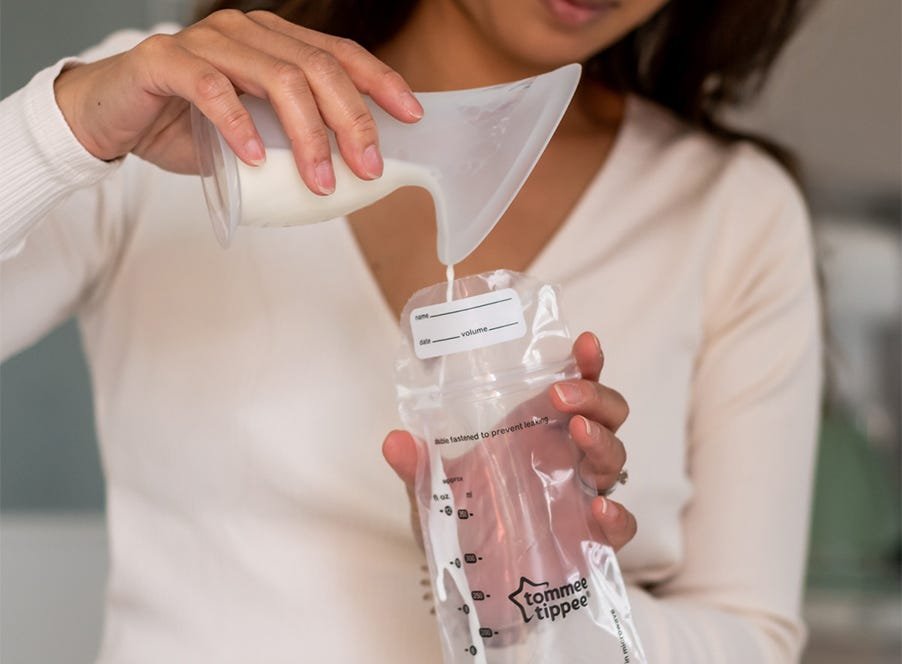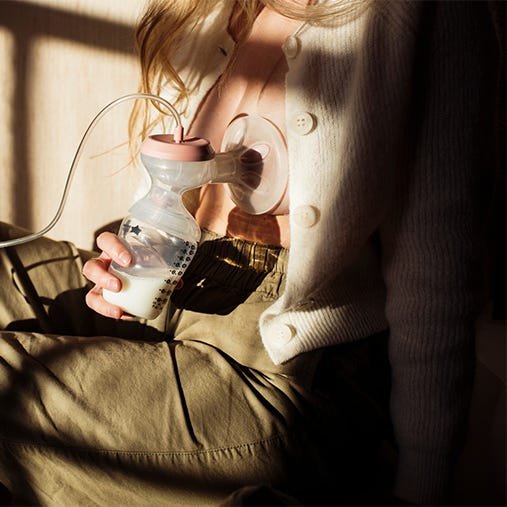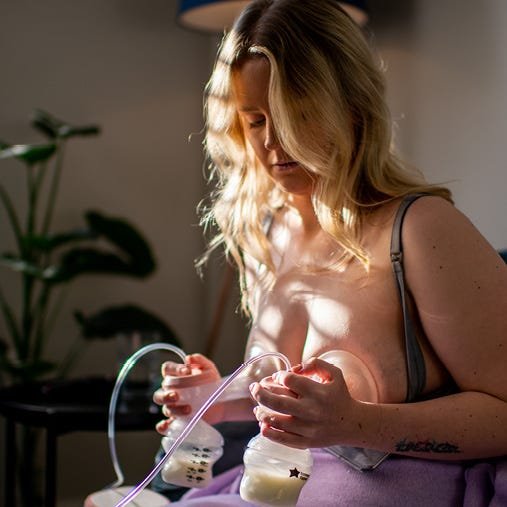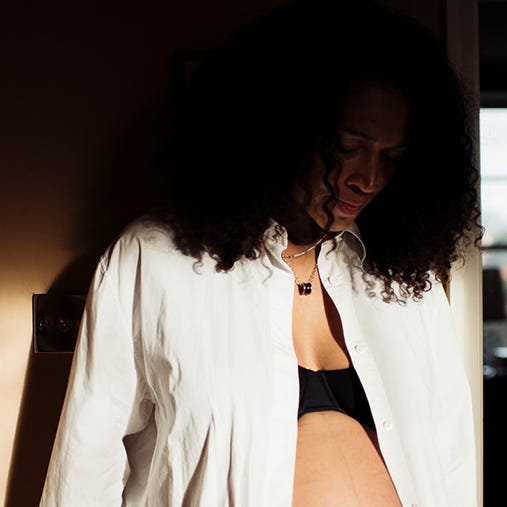Any parent who has expressed breast milk knows how precious it is. Even spilling the smallest drop can be heart-breaking - whoever said "don't cry over spilt milk" had obviously never expressed breast milk!
By knowing how to store it properly for future use, you can reduce the risk of any going to waste and keep your baby safe. Don't worry if you're unsure how to store your expressed milk - that's why we're here to help!
Preparations for storing breast milk
Before you store your expressed breast milk, make sure that...
- You've cleaned your breast pump
- You have an appropriate storage container (such as bottles or bags) ready
- Your hands are clean
- You have a waterproof pen and label handy to note down the date that the milk was expressed
- You have space in your fridge or freezer to store the milk
Breast milk storage containers
Breast milk is very resilient and stores well due to its antibacterial properties. Once it's been expressed, you can store breast milk in a sterilised container bag or pouch. All containers you use to store your breast milk should be food-grade and BPA-free.
It's handy to note that it's fine to put breast milk that's been pumped at different times on the same day into the same pot or pouch. Just make sure you avoid adding warm milk to frozen milk, as it can cause partial thawing.
Can you store breast milk in bottles?
Yes, you can store expressed milk in a bottle with a secure storage lid. But if you're planning on putting your expressed milk into the freezer, it's best to use a plastic bottle or container, rather than one made of glass. This is because glass bottles can crack or break when at very cold or hot temperatures.
How to use breast milk storage bags
You can store expressed breast milk in clean, storage bags, and the process is pretty simple. Just transfer the expressed milk to the sterilised bag, then seal, label, and store it in the fridge or freezer.
Avoid bags that are not designed for freezing - they might burst or tear. Our storage pouches are ideal, and they're already sterilised and ready for use right away!
How to store breast milk
Freshly expressed breast milk lasts at room temperature for around six to eight hours. So, if you won't be using it straight away, it's best to refrigerate or freeze it after expressing.
Refrigerating breast milk
If you want to feed your baby expressed milk shortly after expressing, storing it in the fridge between 0°C and 10°C can be preferable over freezing. This is because freezing alters some of the milk's biologically active components.
It's best to put your expressed milk in the fridge as soon as possible once it's been expressed. To protect breast milk from temperature changes as the door opens and closes, don't store it in the fridge door. Instead, store it as close to the back as possible.
Freezing breast milk
Frozen breast milk can last up to six months if it's stored at -18C or lower. So, if you know you won't be using it within four days, it's best to freeze it right away to help protect its quality.
When freezing breast milk, it's a good idea to leave a 2.5cm gap at the top of the container for expansion. It's always helpful to store your newly pumped milk at the back and clearly label it with the date it was expressed. That way, when you're reaching for some frozen milk to defrost and give your baby, you'll always use the oldest milk first.
Freezing milk in individual feed amounts of 60 to 125ml is a good idea (until you know how much your baby has per feed), then it's ready to be defrosted when needed. You can also store smaller quantities of around 30ml for days when your baby is feeling extra hungry!
Labelling expressed breast milk
You should always label the container with the date and time the milk was expressed using a waterproof pen and sticker, so you can use the oldest batch first. It can help to add a 'use by' date too. If your baby is going to have the milk at a childminder or nursery, clearly add their name and ask your care provider if they have any other requirements for how it should be labelled or stored.
If you're going to freeze the milk, it's also handy to write the amount because milk can expand once frozen, and it can be tricky to see just how much you've got in each container.
How long does breast milk last?
Just like any other foodstuff, breast milk will expire over time. The amount of time breast milk lasts will depend on whether it's stored in the fridge or freezer, and at what temperature. You can buy special fridge and freezer thermometers to help you monitor this.
Breast milk can either be frozen or refrigerated, depending on when you're planning to use it. If you want to store your breast milk for longer than five days, pop it in the freezer as soon as you can after expressing it to protect the quality and nutrients.
The longer you store your milk, the more you need to think about...
- Cleanliness while expressing, storing, and handling it.
- Storing it at appropriate temperatures (use fridge and freezer thermometers).
- Checking for bad tastes and smells, which will show if it has gone off. Always pour away any breast milk that smells sour. Don't give it to your baby.
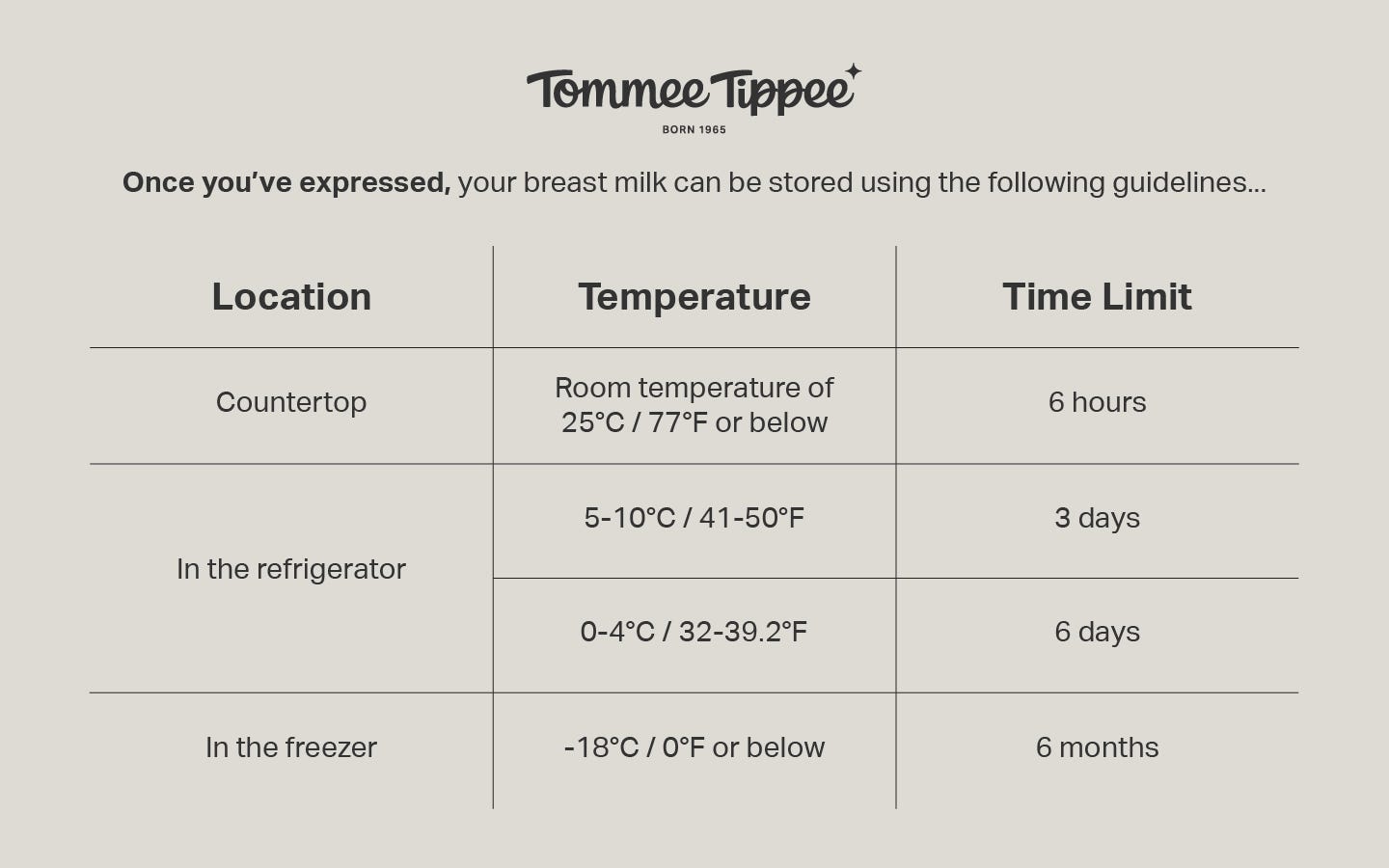
Please note, these guidelines explain how long you can store breast milk for a full-term baby with no additional health concerns.
If your baby is premature or has been ill, it's best to discuss this with your health professional to check that the same storage times apply.
How long can breast milk last in the fridge?
You can store freshly expressed breast milk in the fridge:
- at 5-10°C for three days
- at 0-4°C for six days
You can store thawed frozen breast milk that's not warmed:
- at the back of the fridge for up to 12 hours
If you're unsure of the temperature setting of your fridge it's best to use any expressed breast milk stored in it within three days.
How long can you keep breast milk in the freezer?
You can store freshly expressed breast milk:
- in the freezer for up to 6 months
Breast milk stored in the fridge but intended for freezing should be frozen within 24 hours. Never re-freeze previously frozen breast milk and throw away any unused breast milk after thawing.
Transporting breast milk when you're out and about
If you're taking colostrum or expressed breast milk into the hospital, follow their advised storage and transport times.
If you want to take some expressed breast milk with you when you go out, make sure it's in a securely sealed container to avoid spills.
You'll also need to make sure that it stays cold until needed. You can store breast milk with ice packs in an insulated cooler for up to 24 hours when travelling. Once at your destination, store it in the fridge or freezer or use it straight away.
If no ice packs are available when transporting breast milk, it should be used within four hours.
